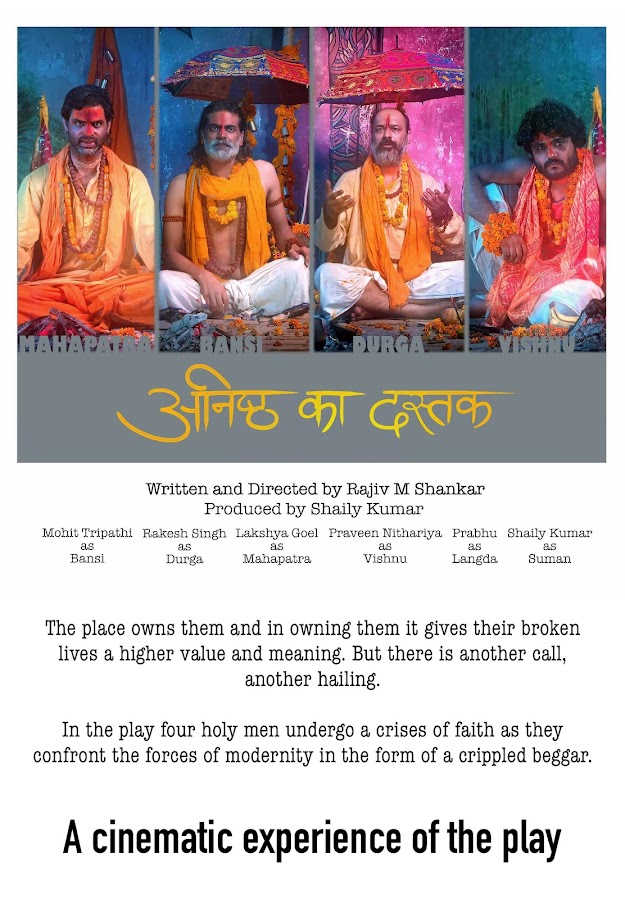Kulpralay
Kulpralay is a poetic drama divided into several sections, offering a narrative through the perspective of Dwarka city.
It explores the origins and motivations of the antagonist, Shalva, specifically his deep-seated grief over lost love and unwavering loyalty to his friend, Shishupala.
Kulpralay narrates the cataclysmic events leading to the destruction of the city of Dwarka and the Yadu dynasty. The narrative unfolds through the voice of Dwarka itself, personified as a silent witness to its own demise.
The story begins with the birth of Shishupala, cursed to be an enemy of Vishnu. Krishna promises to forgive Shishupala's insults a hundred times before his inevitable end. This promise sets the stage for the unfolding tragedy. Shishupala, fueled by envy and hatred for Krishna, becomes the emperor of Chedi and an adversary of the Yadavas. His animosity culminates in the Rajasuya Yagna, where he publicly insults Krishna. Krishna, having exhausted his promise of forgiveness, slays Shishupala with the Sudarshana Chakra.
However, Shishupala's death is not the end but a catalyst. His companion, Shalva, witnesses this event and is consumed by a desire for revenge. Shalva, who had previously suffered personal loss and humiliation at the hands of Bhishma (who took Amba, Shalva's beloved, from him), now dedicates himself to destroying Krishna and Dwarka. He performs severe penance to Shiva, seeking a weapon of unparalleled destruction. Shiva grants him the "Saubha" (सौभ), a celestial flying city, a fortress born of Maya (illusion) that cannot be destroyed by ordinary means.
The narrative then shifts to Dwarka's perspective as Saubha attacks, bringing chaos and fear to the city. The Yadava heroes, including Pradyumna, Samba, and Balarama, valiantly fight against Shalva and his illusory fortress. Despite their bravery and initial successes, Saubha's deceptive nature and the immense power of Maya overwhelm them. Krishna eventually confronts Shalva and destroys Saubha with the Sudarshana Chakra.
Even after Saubha's destruction, its illusory power continues to torment Shalva, trapping him in a web of false realities and memories. Dwarka, though victorious, is left wounded and scarred.
The poetic drama then delves into the internal decay of the Yadava clan, marked by arrogance and excessive indulgence. A curse by the sages Vishwamitra, Kanva, and Narada, triggered by Samba's disrespectful act, foretells the Yadavas' self-destruction. This curse manifests as an iron mace born from Samba, which, when ground into powder and cast into the sea, grows as sharp blades of grass. These grasses become the weapons in the final, tragic battle among the Yadavas at Prabhasa.
Krishna, witnessing the complete annihilation of his clan, retires to the forest. There, he is struck by an arrow, tipped with a fragment of the same iron mace, marking the end of his earthly लीlā (divine play). Dwarka, with Krishna's departure and the Yadava's demise, is ultimately submerged by the ocean, becoming a silent testament to the cyclical nature of creation and destruction.
The play concludes with Dwarka reflecting on its existence, its love for Krishna, and the inevitable end of all things, emphasizing that only love and consciousness remain eternal.



